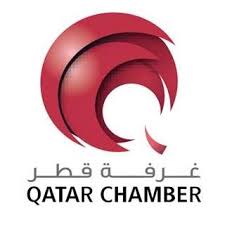
Qatar Chamber – Comprehensive Overview
The Qatar Chamber of Commerce and Industry (QCCI), also known as the Qatar Chamber, is a key institution in Qatar’s economic ecosystem. It acts as the main representative body for the private sector and plays a crucial role in enhancing the business climate in Qatar. Founded in 1963, the Qatar Chamber has grown to become an essential player in fostering economic growth, attracting investments, and advocating for the interests of businesses across various sectors in the country.
1. Key Functions and Objectives of the Qatar Chamber
A. Representation of the Private Sector
The Qatar Chamber represents Qatari businesses in various industries such as commerce, agriculture, construction, manufacturing, and services. It works to protect the interests of local entrepreneurs and companies, promoting a conducive environment for the private sector to thrive.
- Advocacy: It advocates for the needs and rights of Qatari businesses, ensuring that the government is aware of the challenges and opportunities within the private sector.
- Private Sector Voice: It is the official platform through which businesses voice concerns and seek solutions to issues impacting the growth of their operations.
B. Promoting Trade and Investment
Qatar Chamber plays a pivotal role in facilitating trade both within the country and internationally. It strives to improve Qatar’s position as a regional and global business hub by organizing business forums, trade delegations, and investment promotion events.
- International Business Events: The Chamber regularly organizes forums and conferences aimed at fostering cross-border trade relationships. These events often feature key industry leaders, business executives, and government representatives, facilitating the exchange of ideas and promoting collaboration.
- Encouraging FDI (Foreign Direct Investment): The Qatar Chamber plays an active role in attracting international investors, ensuring that Qatar remains an appealing destination for foreign capital and international companies looking to establish a presence in the Middle East.
C. Business Support Services
Qatar Chamber provides a wide range of services to its members to help improve their business operations, enhance compliance, and resolve legal matters.
- Issuance of Certificates of Origin: The Chamber issues certificates of origin for exports, which are required by international trade regulations. This service ensures that Qatari goods can be exported smoothly.
- Legal and Arbitration Services: The Chamber also provides legal consultations to members and offers arbitration services to resolve business disputes without resorting to lengthy court processes.
- Business Networking: It facilitates business networking through meetings and events designed to connect Qatari businesses with potential partners, suppliers, and investors.
D. Policy Advocacy and Advisory Role
As a liaison between the private sector and the government, Qatar Chamber plays a critical role in shaping policies, regulations, and laws that impact the business environment in Qatar.
- Policy Recommendations: The Chamber submits feedback and proposals on laws and regulations, ensuring that they align with the needs of businesses and promote economic growth.
- Public Policy Influence: It engages in high-level discussions with the Qatari government to advocate for policies that promote economic diversification, strengthen trade relations, and ensure a favorable regulatory environment for business activities.
2. Leadership of Qatar Chamber
The Qatar Chamber has been under the leadership of Sheikh Khalifa bin Jassim Al Thani since 2006. Sheikh Khalifa is a prominent businessman and a key figure in Qatar’s economic development. He is also the Chairman of the Federation of GCC Chambers of Commerce and Industry since 2014.
- Sheikh Khalifa’s Leadership: Under his leadership, the Qatar Chamber has been instrumental in advocating for the diversification of Qatar’s economy, strengthening the private sector, and enhancing Qatar’s global economic relations.
- Strategic Partnerships: Sheikh Khalifa’s role also includes leading the GCC Chambers of Commerce, working to expand economic cooperation among Gulf countries, and promoting regional integration.
3. Recent Initiatives and Achievements
A. Strengthening International Economic Ties
Qatar Chamber has been proactive in fostering relationships with key international markets. Some of its recent initiatives include:
- France-Arab Economic Summit Participation: The Qatar Chamber played a crucial role in participating in the France-Arab Economic Summit, enhancing Qatar’s economic partnerships with France and other Arab countries.
- Qatar-Iran Business Council Meetings: The Qatar Chamber engaged in talks with the Qatar-Iran Business Council, exploring opportunities for trade and investment between the two countries.
B. Support for Local Businesses and Entrepreneurs
In addition to its international initiatives, Qatar Chamber also focuses heavily on supporting local entrepreneurs and businesses. Recent initiatives to assist local businesses include:
- Workshops and Training Programs: Qatar Chamber regularly organizes workshops, seminars, and training sessions aimed at increasing the competitiveness of local businesses. These sessions focus on improving management skills, innovation, and business strategies.
- Startup Support: It offers platforms for local startups to present their businesses to investors, providing resources to help them grow and compete in the regional market.
C. Hosting High-Level Business Events
The Qatar Chamber is also known for hosting major business events and conferences, attracting high-level decision-makers and industry leaders. These events serve as important platforms for knowledge exchange and partnership development.
4. Qatar Chamber’s Impact on Qatar’s Economy
The Qatar Chamber plays a pivotal role in Qatar’s economy by:
- Facilitating the expansion of trade and investment, both regionally and globally, to strengthen Qatar’s position as a business hub.
- Enhancing Qatar’s private sector, providing it with the necessary tools and support to expand, innovate, and compete in international markets.
- Promoting economic diversification, ensuring that Qatar’s economy is less reliant on oil and gas and more focused on industries such as technology, services, healthcare, and manufacturing.
- Ensuring that businesses are well-represented in government discussions, ensuring that policies and regulations support sustainable economic development.
5. Conclusion
The Qatar Chamber of Commerce and Industry continues to be a cornerstone of economic growth and private-sector development in Qatar. By providing support services, advocating for favorable policies, and facilitating international trade and investment, the Chamber plays a crucial role in ensuring that Qatar remains at the forefront of regional and global business. Through its initiatives, the Qatar Chamber is instrumental in shaping the future of Qatar’s economy, making it more diversified, innovative, and competitive in the global market.

